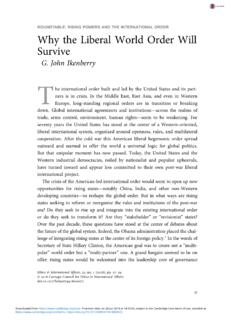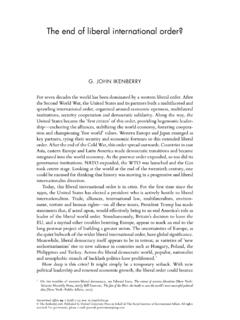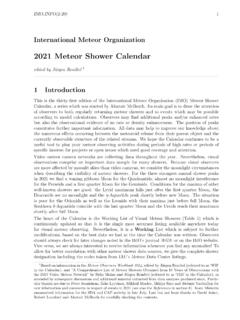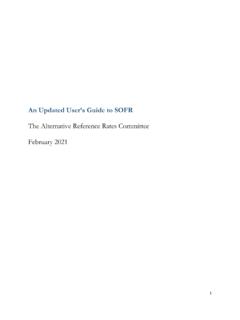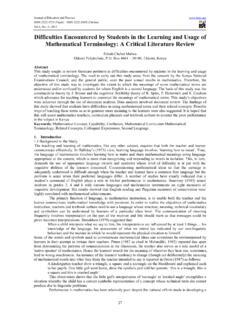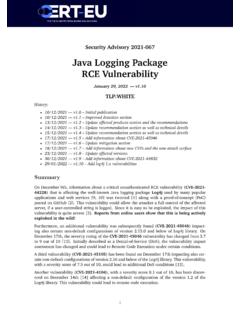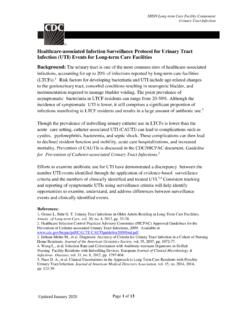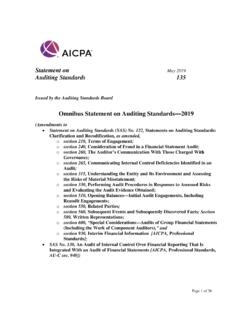Transcription of Anomalies: The Endowment Effect, Loss Aversion, and Status ...
1 Anomalies: The Endowment Effect, Loss Aversion, and Status Quo Bias by Daniel Kahneman, Jack L. Knetsch, Richard H. Thaler The Journal of Economic Perspectives, 5(1), pp. 193-206, Winter 1991 Permission to make digital or hard copies of part or all of American Economic Association publications for personal or classroom use is granted without fee provided that copies are not distributed for profit or direct commercial advantage and that copies show this notice on the first page or initial screen of a display along with the full citation, including the name of the author.
2 Copyrights for components of this work owned by others than AEA must be honored. Abstracting with credit is permitted. The author has the right to republish, post on servers, redistribute to lists and use any component of his or her work in other works. For others to do so requires prior specific permission from the author, who should be contacted first for permission to copy, translate, or republish, and subsequent permission of the AEA. Permission requests to the AEA should already include permission of the author. While the AEA does hold copyright, our policy is that the author's agreement be secured before contacting us.
3 Permissions may be requested from the American Economic Association, 2014 Broadway, Suite 305, Nashville, TN 37203, or by e-mailing to Journal of Economic Perspectives-Volume 5, Number 1-Winter 1991-Pages 193-206 Anomalies The Endowment Effect, Loss Aversion, and Status Quo Bias Daniel Kahneman, Jack L. Knetsch, and Richard H. Thaler Economics can be distinguished from other social sciences by the belief that most (all?) behavior can be explained by assuming that agents have stable, well-defined preferences and make rational choices consistent with those pref-erences in markets that (eventually) clear.
4 An empirical result qualifies as an anomaly if it is difficult to "rationalize," or if implausible assumptions are necessary to explain it within the paradigm. This column presents a series of such anomalies. Readers are invited to suggest topics for future columns by sending a note with some reference to (or better yet copies of) the relevant research. Comments on anomalies printed here are also welcome. The address is: Richard Thaler, c/o Journal of Economic Perspectives, Johnson Graduate School of Management, Malott Hall, Cornell University, Ithaca, NY 14853. After this issue, the "Anomalies" column will no longer appear in every issue and instead will appear occasionally, when a pressing anomaly crosses Dick Thaler's desk.
5 However, suggestions for new columns and comments on old ones are still welcome. Thaler would like to quash one rumor before it gets started, namely that he is cutting back because he has run out of anomalies. Au contraire, it is the dilemma of choosing which juicy anomaly to discuss that takes so much time. Daniel Kahneman is Professor of Psychology, University of California, Berkeley, California. Jack L. Knetsch is Professor of Economics and Natural Resources Manage-ment, Simon Fraser University, Burnaby, British Columbia, Canada. Richard H. Thaler is Henrietta Johnson Louis Professor of Economics, Johnson School of Management, Cornell University, Ithaca, New York.
6 194 Journal of Economic Perspectives Introduction A wine-loving economist we know purchased some nice Bordeaux wines years ago at low prices. The wines have greatly appreciated in value, so that a bottle that cost only $10 when purchased would now fetch $200 at auction. This economist now drinks some of this wine occasionally, but would neither be willing to sell the wine at the auction price nor buy an additional bottle at that price. Thaler (1980) called this pattern-the fact that people often demand much more to give up an object than they would be willing to pay to acquire it-the Endowment efect. The example also illustrates what Samuelson and Zeckhauser (1988) call a Status quo bias, a preference for the current state that biases the economist against both buying and selling his wine.
7 These anomalies are a manifestation of an asymmetry of value that Kahneman and Tversky (1984) call loss aversion-the disutility of giving up an object is greater that the utility associated with acquiring it. This column documents the evidence supporting Endowment effects and Status quo biases, and discusses their relation to loss aversion. The Endowment Effect An early laboratory demonstration of the Endowment effect was offered by Knetsch and Sinden (1984). The participants in this study were endowed with either a lottery ticket or with $ Some time later, each subject was offered an opportunity to trade the lottery ticket for the money, or vice versa.
8 Very few subjects chose to switch. Those who were given lottery tickets seemed to like them better than those who were given money. This demonstration and other similar ones (Knetsch, 1989), while striking, did not settle the matter. Some economists felt that the behavior would disappear if subjects were exposed to a market environment with ample learning opportunities. For example, Knez, Smith and Williams (1985) argued that the discrepancy between buying and selling prices might be produced by the thoughtless application of normally sensible bargaining habits, namely understating one's true willingness to pay (WTP) and overstating the minimum acceptable price at which one would sell (willingness to accept or WTA).
9 Coursey, Hovis, and Schultze (1987) reported that the discrepancy between WTP and WTA diminished with experience in a market setting (although it was probably not eliminated, see Knetsch and Sinden, 1987). To clarify the issue, Kahneman, Knetsch, and Thaler (1990) ran a new series of experiments to determine whether the Endowment effect survives when subjects face market discipline and have a chance to learn. We will report just two experiments from that series. Daniel Kahnernan, Jack L. Knetsch, and Richard H. Thaler 195 In the first experiment, students in an advanced undergraduate economics class at Cornell University participated in a series of markets.
10 The objects traded in the first three markets were 'induced value tokens.' In such markets all subjects are told how much a token is worth to them, with the amounts varying across subjects. Half the subjects were made owners of tokens, the other half were not. In this way, supply and demand curves for tokens are created. Subjects alternated between the buyer and seller role in the three successive markets, and were assigned a different individual redemption value in each trial. Experimenters collected the forms from all participants after each market period, and immediately calculated and announced the market-clearing price and the number of trades.







